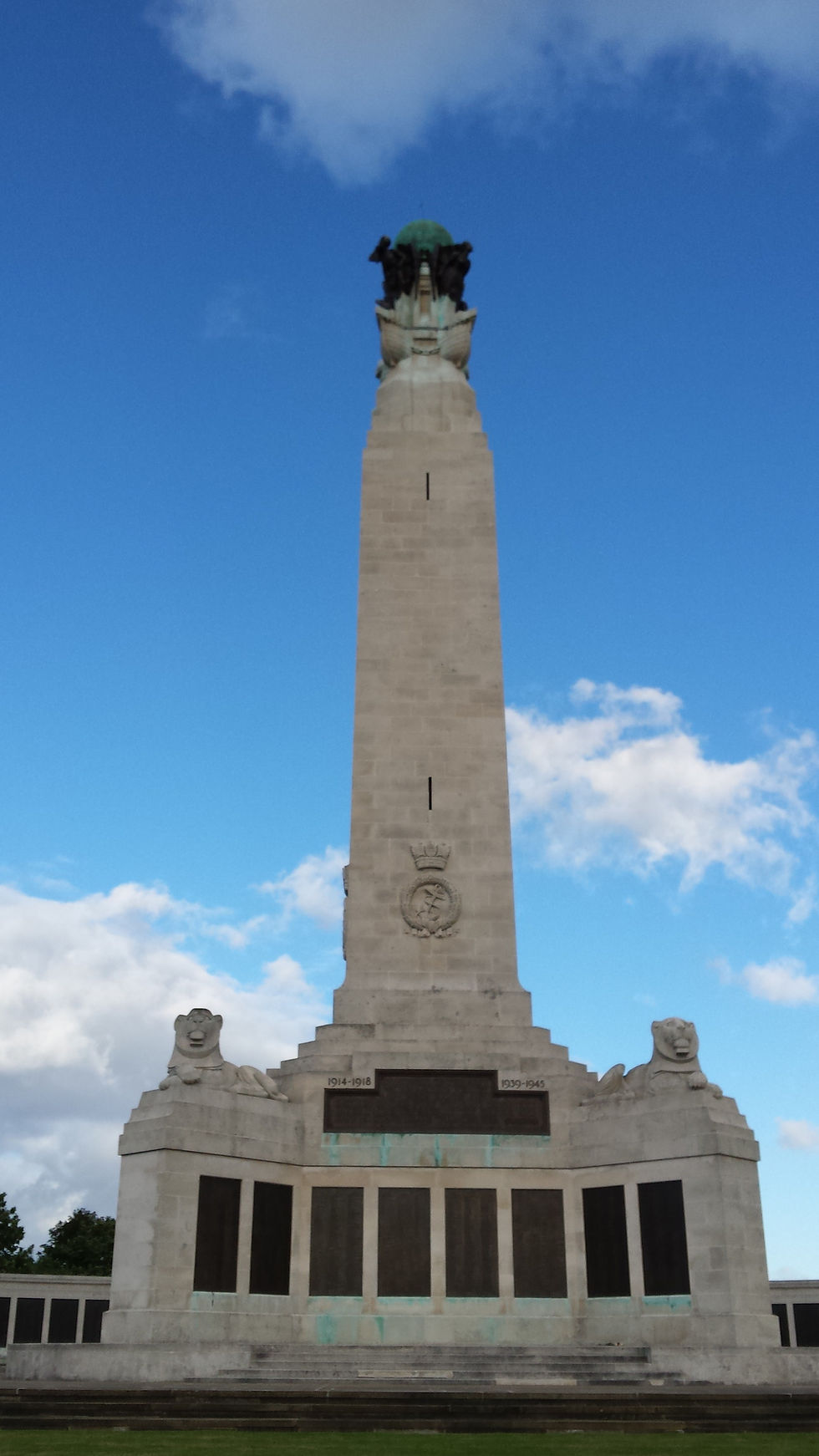Chatham Memorial, Kent, UK
- Simon Davies
- Oct 22, 2016
- 2 min read
During a visit to my home county of Kent last year, I had the opportunity to visit the Chatham Naval Memorial, which commemorates 8,517 sailors of the First World War and 10,098 of the Second World War. Among the fallen heroes of the First World War, it is possible to find an inscription for the pilot and poet Jeffrey Day. Day was killed in air combat on 27 February 1918, but penned several poems before his untimely death.
As I was researching my book on First World War poetry, I was struck by how Day’s work stood out from those of many other writers at that time. First of all, poetry produced by pilots is much less prolific than the many works of the soldiers fighting on terra firma. This is logical of course: the notion of struggling for air supremacy in a major conflict was, of course, a totally new concept at the beginning of the 20th century, and the role of the airplane was fairly limited in the First World War. Pilots’ missions were largely confined to observation or bombing and there were far fewer enlisted men compared to the huge numbers of men enrolled in the army, or even in the navy.
Secondly, Day’s works tell us much less about the rigours of war than about the pure unmitigated joy of being airborne. In his poem “On the Wings of the Morning”, for example, a sense of the beauty of Nature and the delights of being up in the air pervade every line. As he himself writes at one point, “all the world is silver, blue, and gold”. Indeed, colour is a common trope in his verse, as this extract indicates:
"Have you chased a golden sunbeam down a gold and silver alley,
with pink and orange jewels on the floor?
Have you raced a baby rainbow round a blue and silver valley,
where purple caves throw back the engine’s roar?"
A contrast is clearly made here to the “grey smudge” of London and the “clammy, grey” ground once he returns to base.
On the other hand, little reference at all is made to the war being fought below and the terrible atrocities suffered by many. Even if flying is mentioned in relation to combat, Day prefers to highlight its thrill and excitement more than anything else:
“Have you fought a dummy battle, diving, twisting, pirouetting,
at a lightning speed that takes away your breath?
Have you been so wildly thrilled that you have found yourself forgetting
that it’s practice, not a battle to the death?”
In short, the notion of being able to fly high up above the world is such that its splendor, “nearly blinds you”,
“and the wonder of it binds you,
and you know you are in heaven, close to God”
© 2016 Simon Davies






























Comments